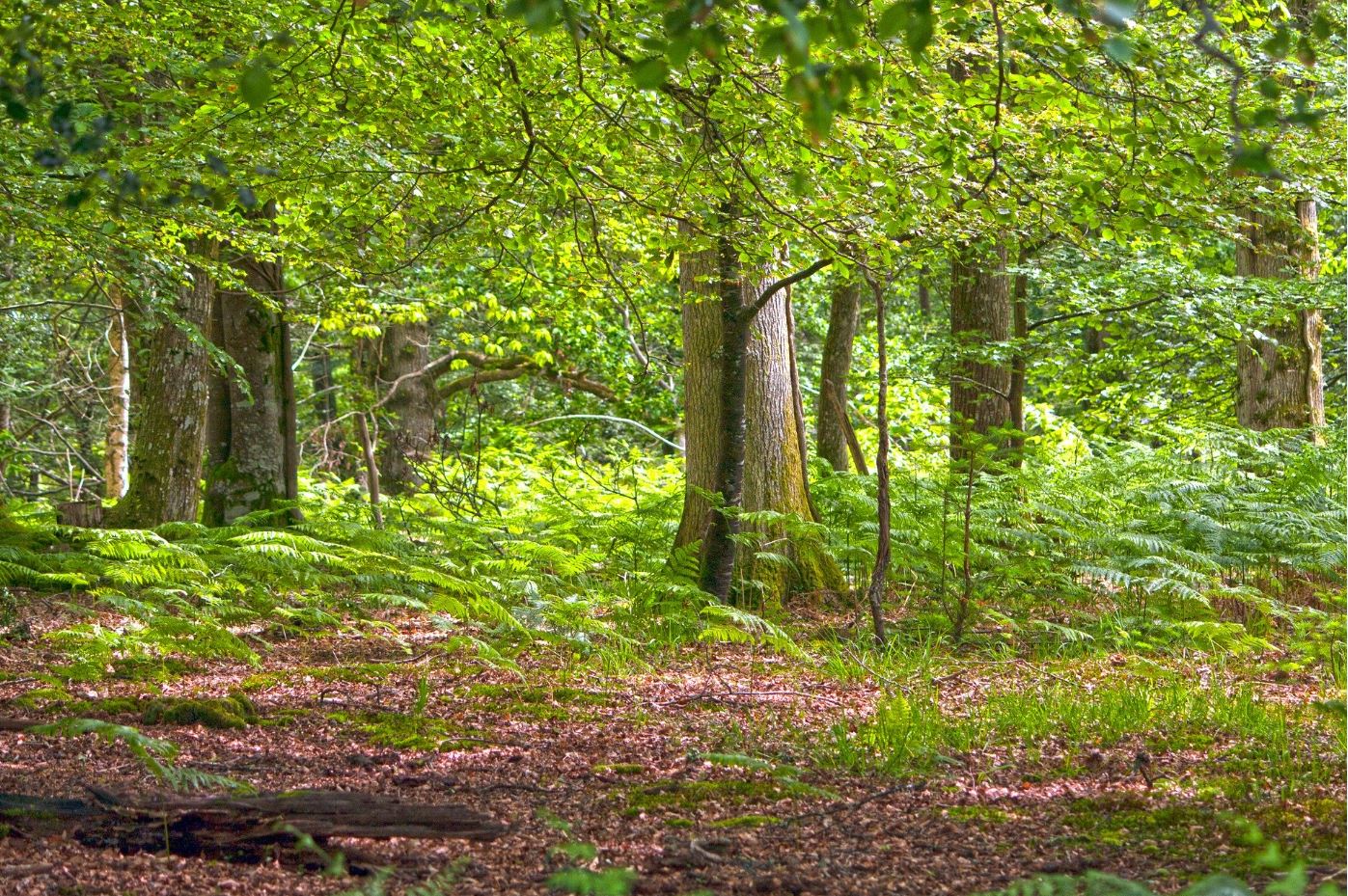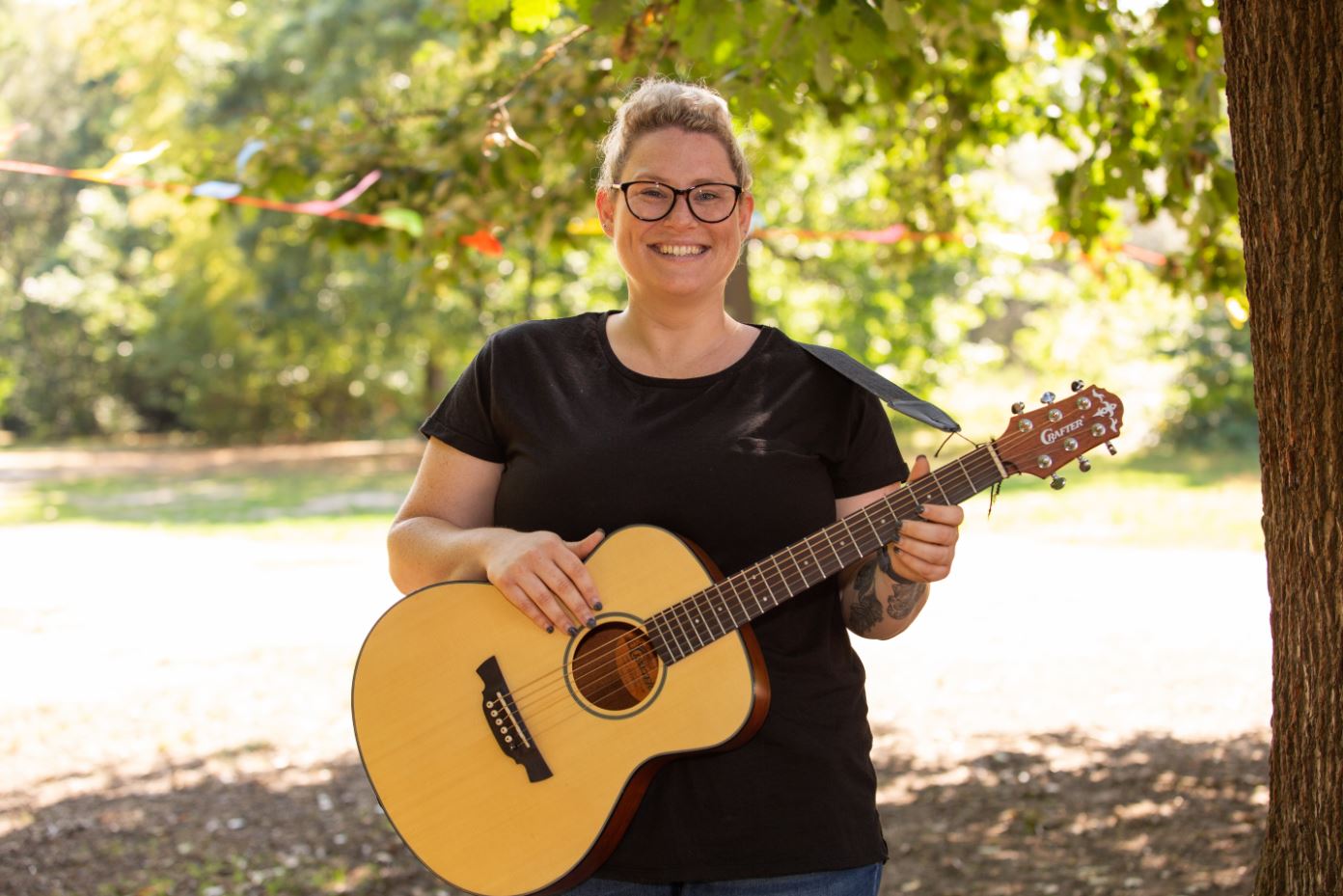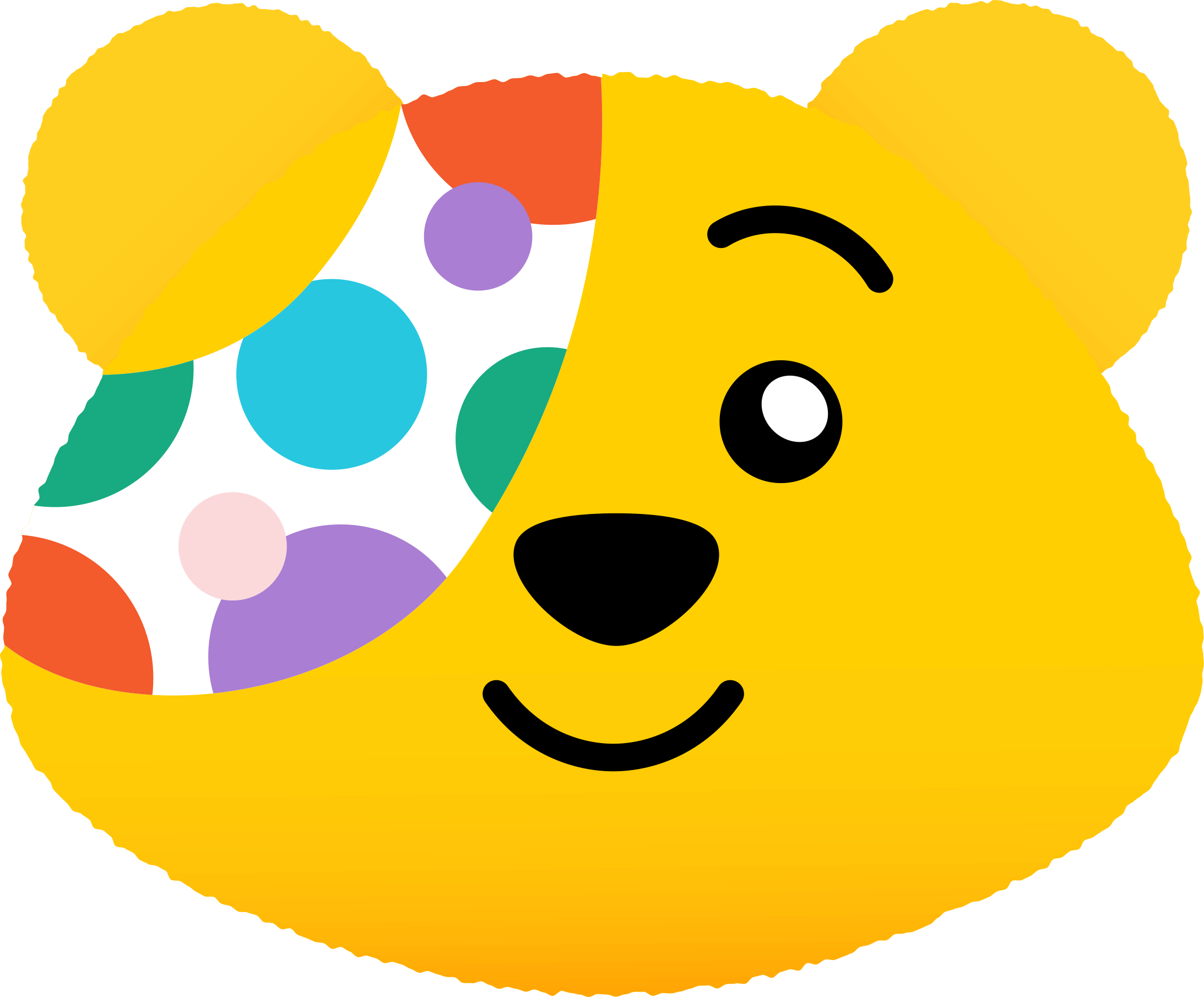
A Day in the Life of Emily, Music Therapist at BOSP
Meet Emily, she’s a Music Therapist at Brighter Opportunities for Special People (BOSP), a BBC Children in Need funded project where children and young people with complex disabilities and life limiting illnesses can meet up and have fun. Through her work she experiences many incredible things, and meets lot of amazing children and young people. Here’s what it’s like spending a day in the life of a Music Therapist like Emily.
What does being a Music Therapist involve?
As a Music Therapist, I provide Music Therapy sessions at BOSP’s fantastic play sessions for children and young people with special needs and disabilities. Due to BOSP not having a permanent ‘home’, I arrive wherever they are holding the session with my wagon of instruments and encourage the children and young people to participate in making music at whatever level they can.

My role is to include everyone in the music, no matter what their musical abilities are and to provide a musical experience for the group
Participation can look very different for each person, whether this is singing, playing the instruments or perhaps simply being in music; ‘being’ and interacting with other people can be quite difficult for some of the young people we work with so sometimes just being in the room and listening can be enough.
What does an average day look like for you at BOSP?
I have been providing Music Therapy sessions at BOSP for 3 years now! Our groups are always fun and engaging, and no session is ever exactly the same! I arrive at BOSP to be greeted by friendly staff and young people, who are often so willing to help me with all of my equipment.
I set up my piano, tune my guitar and we all come together in a big circle ready for our ‘Hello’ song
A hello song at the beginning of the session is great way for the children and young people to recognise and come together to start our time in music. By using the same song each time, it gives the opportunity for everyone to sing a familiar song and join in together.
I give everyone the time and space within the song to strum the guitar whilst singing an individual hello to each person, bringing awareness of themselves in the music as well as awareness to the other people in the group, encouraging listening, turn taking and waiting skills.
After our Hello, we will often get straight into some group music making, through musical activity songs or improvisation, encouraging the group to play together, choose their instruments and take solos within the structures.
Music gives each person the time and space to explore themselves and their instruments, and with my accompaniment and reflection of their musical offerings, the chance for their musical expressions to be acknowledged and celebrated.
We will often have some song requests from the children and young people, ranging from Old MacDonald to the latest pop songs
It is important for each person to be given a choice, whether they sing it themselves as a solo or whether we then sing it as a group, helping to support their confidence and self-esteem.
No session is ever the same just as no person is exactly the same. The sessions are very much based on the children and young people who are there at that time, and focusses on what they are able to offer, rather than following a set routine.
Our music making will always finish with a ‘Goodbye song’, directing the focus to each person in the group when we sing goodbye. Not only does this song symbolise the end of the session, it allows the children to come into something collective and focussed following the excitement and creativity of our session.
I wouldn’t be able to run these Music Therapy sessions at BOSP without the funding from BBC Children in Need
BBC Children in Need provide vital funds to enable everyone to access music as a Therapy and we are all extremely grateful for the opportunities it gives to the children who are able to attend.
Music Therapy enables the children and young people to explore and express themselves through music, to experience themselves in a different way through music as well as working on particular skills, whether that be social and communicative skills such as waiting and listening, turning taking, making choices and increasing their awareness of themselves and others, building on friendships and relationships through the group, or physical and cognitive skills such as holding the instruments and playing them purposefully and with meaning.
The children and young people not only visibly enjoy their Music Therapy sessions, but they benefit from the experiences it gives them.
What’s the best thing about your role?
The best thing about my role is being able to offer musical opportunities to children and young people, who might not be able to access music in this way outside of this very special group.
Therapies such as Music Therapy aren’t always readily available to families, but through the BBC Children in Need funding, BOSP are able to offer this to everyone that uses their services.
Music is a universal language, you don’t need to be able to talk to enjoy and participate; seeing someone who can be quite removed from the outside world, being with other people and coming into music is very powerful.
Witnessing someone who finds social interaction difficult, sitting with me and strumming a guitar whilst I sing with them is something quite magical. Hearing somebody sing a solo whilst I accompany them on the piano with everyone listening to them is just beautiful.
Facilitating these musical experiences for people is a real privilege.
